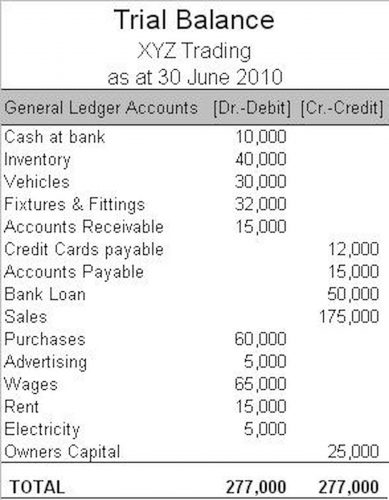
For the past 52 years, Harold Averkamp (CPA, MBA) hasworked as an accounting supervisor, manager, consultant, university instructor, and innovator in teaching accounting online. He is the sole author of all the materials on AccountingCoach.com. For example, an annual salary of $60,000 might appear as $60k instead of $60M. For the past 52 years, Harold Averkamp (CPA, MBA) has worked as an accounting supervisor, manager, consultant, university instructor, and innovator in teaching accounting online. However, millions range from 1,000,000 to 999,999,999 so there can be a maximum of eight zeros if you are referencing a 100 million (100,000,000).

“M” vs. “MM” – What Is The Correct Abbreviation for “Million”?
It’s a concise way to denote large amounts without taking up a lot of space on the page or screen. In financial operations – where every zero in a number is crucial – abbreviating large figures helps reduce potential errors when handling complex calculations and transactions. The correct abbreviation for “million” in the UK is only M. “M” is the only acceptable abbreviation to use for “million” in UK English. You’ll find that a lot of UK native speakers won’t even know what “mm” stands for (outside https://www.bookstime.com/ of the “millimeter” measurement that is abbreviated to “mm”). “mm” is often left uncapitalized (though there are no specific rules that state which way it should be written).
TWT Meaning: What Does It Mean In Text and Online?

The choice between “M” and “MM” can also be influenced by regional practices and industry standards. In some European countries, for example, “M” is used to denote millions, which can lead to confusion if not clearly defined. This underscores the importance of context and clarity in financial documentation. When preparing reports for an international audience, it is advisable to specify the notation used to avoid any potential misunderstandings. This abbreviation comes from the Latin word “mille,” meaning thousand.
- It is commonly used in financial documents, accounting, and stock market where space is a concern.
- Despite some calls to modernize, MM persists because of its advantages for clarity, precision, and familiarity.
- One of the primary benefits of using “MM” in international reporting is its ability to reduce ambiguity.
- Financial and accounting statements historically used a different approach to abbreviating thousand and million.
- For instance, a financial analyst might report a company’s market capitalization as $500MM, clearly indicating $500,000,000.
- It makes the most sense considering that “million” starts with the letter “M.” Most abbreviations follow this standard practice.
When to Use ‘M’ in Financial Statements

Any universal shift would require a coordinated effort from all major institutions simultaneously. For instance, a budget of $20 million can be expressed as $20MM. This usage does mm mean million can be found in various reports, including investment analyses and economic forecasts.
Related Posts
It also saves space and enhances readability in financial reports, statements, or ledgers where space might be limited. Furthermore, using MM can make a large-scale monetary value easier to quickly grasp, both visually and conceptually, as it simplifies the financial quantities being discussed or presented. Therefore, understanding and using this term is crucial in the field of finance. Its significance also lies in its capability to provide clarity and prevent misunderstandings that could potentially occur if numbers were presented in their raw form. “M” is only used as an abbreviation when talking about a lot of money or in scientific communities. Generally, you will not come across a “million” of anything.
When to Use the Abbreviation
- “M” is the only acceptable abbreviation to use for “million” in UK English.
- In the 20th century, the globalization of markets and the rise of multinational corporations underscored the importance of standardized financial reporting.
- Typically, the abbreviation is used right after a number without a space.
- The word “million” is most often used in reference to money, but is also frequently used in exaggeration.
- It is Latin for multiplying one “thousand” by itself to create the “million” number.
- You might hear something along the lines of “He dropped a couple mil on a new car,” or perhaps “How many mils is that house?
Another driver of using MM was the need to streamline amounts in printed financial statements, reports, and documents. Whether etched by hand or printed, space was at a premium on these pages. MM enabled fitting large monetary values concisely into tables and ledgers. One of the primary benefits of using “MM” in international reporting is its ability to reduce ambiguity. Financial documents often traverse multiple jurisdictions, each with its own set of conventions and retained earnings terminologies.
Latest posts

The term ‘MM’ often signifies millions and is typically used in contexts like budgets and forecasts. It’s a convenient way to represent larger values while maintaining neatness in documentation. Understanding the terms ‘M’ and ‘MM’ is essential in many fields, especially in finance and science. They both refer to millions, but their usage can differ, leading to some confusion.
